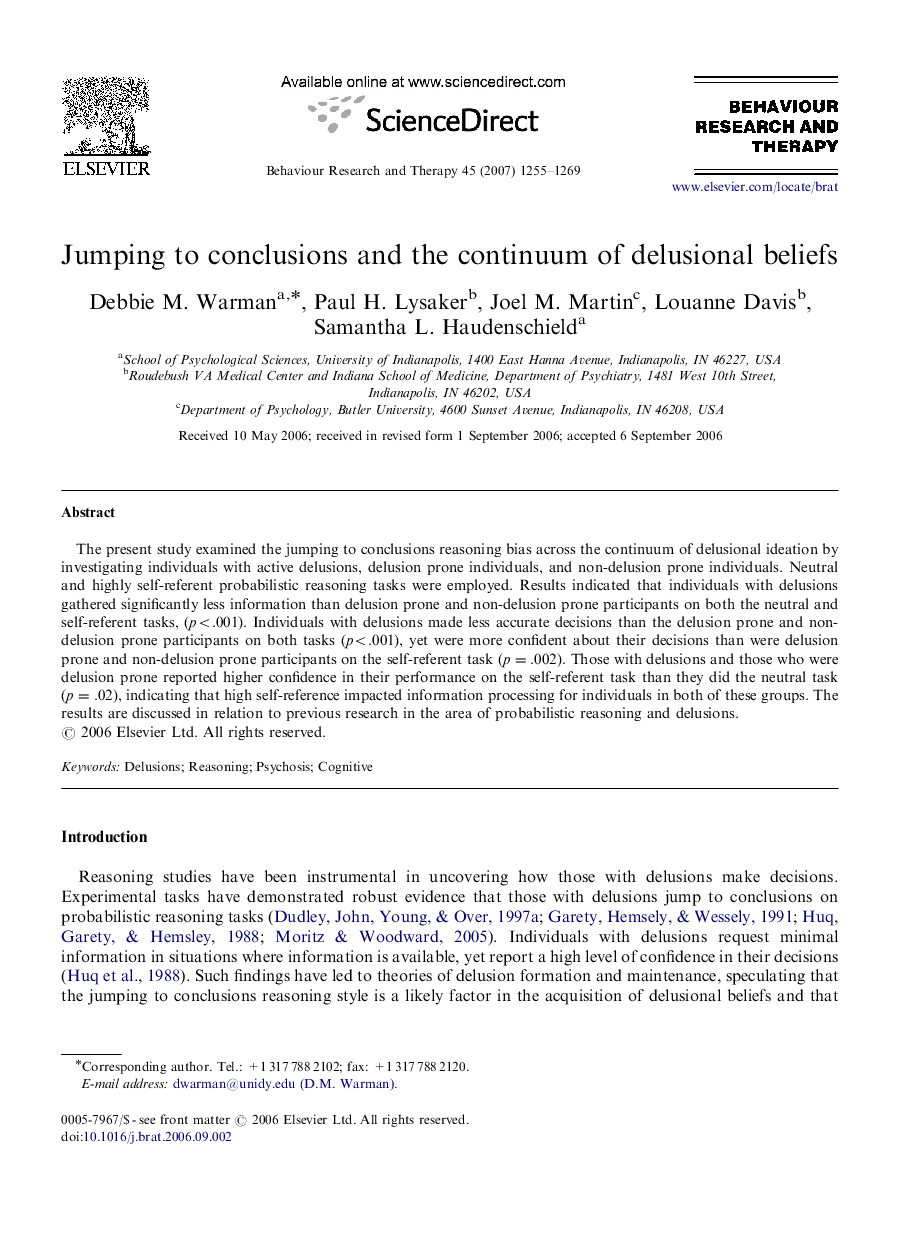| Article ID | Journal | Published Year | Pages | File Type |
|---|---|---|---|---|
| 902395 | Behaviour Research and Therapy | 2007 | 15 Pages |
The present study examined the jumping to conclusions reasoning bias across the continuum of delusional ideation by investigating individuals with active delusions, delusion prone individuals, and non-delusion prone individuals. Neutral and highly self-referent probabilistic reasoning tasks were employed. Results indicated that individuals with delusions gathered significantly less information than delusion prone and non-delusion prone participants on both the neutral and self-referent tasks, (p<.001). Individuals with delusions made less accurate decisions than the delusion prone and non-delusion prone participants on both tasks (p<.001), yet were more confident about their decisions than were delusion prone and non-delusion prone participants on the self-referent task (p=.002). Those with delusions and those who were delusion prone reported higher confidence in their performance on the self-referent task than they did the neutral task (p=.02), indicating that high self-reference impacted information processing for individuals in both of these groups. The results are discussed in relation to previous research in the area of probabilistic reasoning and delusions.
